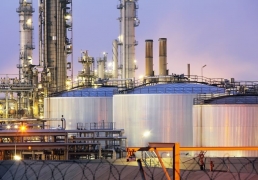Archived article
Please note that tax, investment, pension and ISA rules can change and the information and any views contained in this article may now be inaccurate.

BP’s $0.1050-a-share first-quarter dividend offers £1.7 billion of income to hard-pressed investors and the oil major’s cost reductions, cuts to capital investment, asset sales and higher borrowing harks back to 2015-16 when it last had to confront a major slump in prices for its products. That combination saw the company – and its dividend – through that bleak spell and new boss Bernard Looney is hoping that it will do the trick again this time.
However, questions over whether BP can avoid its first dividend cut since 2010, when its finances were blown off course by the Deepwater Horizon accident in the Gulf of Mexico, will refuse to go away for three reasons.
BP still raked in an average price of $47.47 a barrel for its oil and $2.83 for a thousand cubic feet natural gas free during the first quarter. Cash flow was nowhere close to covering the quarterly dividend payment even then and both prices are now well below those levels.

Source: Company accounts
Cash flow was nowhere close to covering the quarterly dividend payment even then and both oil and gas prices are now well below those levels. If these low prices persist for a long period of time then the oil major might have to reassess its shareholder distribution plans. Norway’s Equinor has already done so.
| BP ($ million) | FY 2015 | FY 2016 | FY 2017 | FY 2018 | FY 2019 | Q1 2020 |
|---|---|---|---|---|---|---|
| Operating profit | (7,918) | (430) | 9,474 | 19,378 | 11,706 | (3,734) |
| Depreciation & amortisation | 17,048 | 15,779 | 17,187 | 16,542 | 18,411 | 4,157 |
| Impairments / gains | 1,243 | (2,796) | 6 | 404 | 7,882 | 1,133 |
| Net working capital | 843 | (3,198) | (3,352) | (4,763) | (2,918) | 683 |
| Tax | (2,256) | (1,538) | (4,002) | (5,712) | (5,437) | (1,054) |
| Capex | (18,648) | (16,701) | (16,562) | (16,707) | (15,418) | (3,789) |
| Operating free cash flow | (9,688) | (8,884) | 2,751 | 9,142 | 11,101 | (2,604) |
| Dividends | 6,659 | 4,611 | 6,153 | 6,699 | 6,946 | 2,102 |
| OpFcF minus Dividends | (16,347) | (13,495) | (3,402) | 2,443 | 4,796 | (4,706) |
Source: Company accounts
BP continues to pile up debt. While a net debt-to-equity or gearing ratio of 56% is far from serious, BP’s net debt position (excluding its $8 billion-plus pension deficit) has steadily crept up from $16 billion in December 2005 to $51 billion at the end of the first quarter, thanks to acquisitions, capital investment and oil’s failure to return to the highs of 2007, as well as $39 billion in share buybacks and $100 billion in dividend payments.

Source: Company accounts
Mr Looney continues to seek to reposition BP for a less carbon-intensive world, as per the new strategy and corporate purpose outlined in February. Anyone who supports this goal is likely to crib Mr Looney if he decides to free BP from the financial burden of its $7 billion a year and redirect a portion of that cash to investment in his long-term strategy. Even a halving of the shareholder distribution would still put BP on a dividend yield of some 5%, a figure that could well be enough to command the loyalty of income-seeking investors at a time when the Bank of England base rate is 0.1% and the UK 10-year Government Gilt yield is 0.29%.
Cost reductions, cuts to capital investment, asset disposals and debt are all short-term cash flow fixes but ultimately they could weaken BP’s ability to invest in its assets and strategy and defend its competitive position.
The risk of a lengthy downturn in oil demand and prices, thanks to the effects of COVID-19, the ongoing standoff between OPEC, Russia and the USA and a potential shift away to alternative, renewable sources of energy all mean that BP still faces considerable challenges. Management will doubtless look to defend the dividend as best it can but, as Equinor has shown, events could still force its hand and it would therefore be rash of the company to say it will defend the dividend whatever the circumstances, even as they will be aware of shareholders’ thirst for income.
These articles are for information purposes only and are not a personal recommendation or advice.
Related content
- Wed, 17/04/2024 - 09:52
- Tue, 30/01/2024 - 15:38
- Thu, 11/01/2024 - 14:26
- Thu, 04/01/2024 - 15:13
- Fri, 17/11/2023 - 08:59

